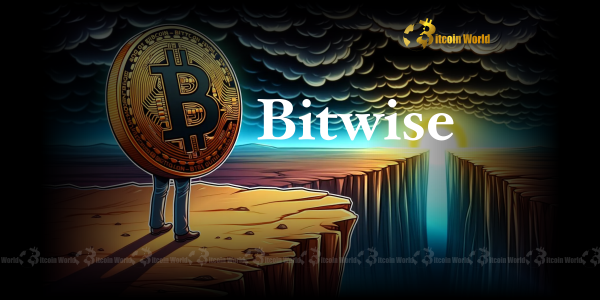BitcoinWorld

South Korea Crypto: Unlocking Major Opportunities for Professional Investors
Get ready for a significant shift in the digital asset landscape! South Korea, a nation at the forefront of technological innovation, is poised to make a monumental move that could redefine how professional investors engage with cryptocurrencies. This isn’t just a minor tweak; it’s a strategic expansion designed to welcome more sophisticated players into the vibrant virtual asset market, promising a more robust and mature ecosystem.
South Korea Crypto: A New Era Dawns for Digital Assets
The buzz is palpable across the global crypto community. South Korea crypto space is set for a significant transformation as the Financial Services Commission (FSC), through its Virtual Assets Division head Kim Sung-jin, has announced plans to roll out new guidelines in the latter half of 2025. These guidelines are specifically tailored to broaden the eligibility criteria for professional investors seeking to dive into the country’s burgeoning crypto space. This forward-thinking approach signals a clear intent from the South Korean government to foster a regulated yet dynamic environment for digital assets.
It’s worth noting that the regulatory landscape is already evolving. As of June, nonprofit organizations have also been given the green light to participate in the market, showcasing a progressive stance towards diverse participation. This gradual but steady expansion suggests a well-thought-out strategy to integrate digital assets more deeply into the nation’s financial fabric.
Who Are These Professional Crypto Investors, and Why Does It Matter?
When we talk about professional crypto investors, we’re typically referring to institutions, high-net-worth individuals, and sophisticated funds that possess the capital, expertise, and risk management frameworks to navigate complex markets. Their increased participation is crucial for several reasons:
- Enhanced Liquidity: More capital flowing into the market means easier buying and selling, leading to less price volatility and a more efficient market.
- Increased Stability: Institutional involvement often brings a longer-term perspective and greater capital depth, potentially reducing the impact of speculative retail trading.
- Greater Legitimacy: When traditional financial powerhouses enter the crypto space, it lends significant credibility to the asset class, paving the way for broader adoption.
- Innovation and Growth: Professional investors often demand more sophisticated products and services, driving innovation in areas like derivatives, structured products, and secure custody solutions within the virtual asset market.
Kim Sung-jin’s comments clarify that while the initial regulatory focus was on domestic corporations, there’s no inherent reason to restrict foreign firms from opening crypto accounts, provided they meet the registration requirements as professional investors in South Korea. This open-door policy could attract significant international capital and expertise.
Navigating the Virtual Asset Market: What Changes Are Coming?
The upcoming guidelines in H2 2025 are expected to provide much-needed clarity and a structured pathway for professional entities seeking virtual asset market access. While the specifics are yet to be fully detailed, the move is anticipated to address several key areas:
- Eligibility Criteria: Defining precise qualifications for what constitutes a “professional investor” in the context of virtual assets. This might include capital thresholds, regulatory licenses, or specific expertise.
- Operational Frameworks: Establishing clearer rules for how these investors can operate, including aspects like trading limits, reporting requirements, and compliance protocols.
- Custody and Security: Potentially introducing stricter guidelines for the secure custody of digital assets, a critical concern for institutional players.
This expansion is not just about letting more money in; it’s about building a more resilient and transparent virtual asset market. It reflects a growing global trend where regulators are moving from outright bans or extreme caution to developing comprehensive frameworks that balance innovation with investor protection.
Understanding the FSC Crypto Guidelines: What’s Next?
The FSC crypto guidelines represent a significant step in South Korea’s evolving approach to digital assets. The Financial Services Commission is the primary financial regulator, and its stance carries immense weight. The announcement, coming from the head of the Virtual Assets Division, underscores a serious commitment to developing a robust regulatory environment. These guidelines will likely build upon the existing “Act on Reporting and Using Specified Financial Transaction Information,” which currently focuses on anti-money laundering (AML) and counter-terrorist financing (CTF) measures for virtual asset service providers (VASPs).
For businesses and investors eyeing the South Korean market, staying informed about these impending guidelines is paramount. They will shape the operational landscape, influencing everything from compliance costs to market access strategies. It’s a clear signal that South Korea intends to be a leader in responsible crypto innovation.
The Broader Crypto Regulatory Framework: A Global Perspective?
South Korea’s proactive stance in refining its crypto regulatory framework aligns with a broader global trend. Nations worldwide are grappling with how to effectively regulate digital assets without stifling innovation. From the European Union’s MiCA regulation to the ongoing debates in the United States, a common thread is the recognition that clear, comprehensive rules are essential for the long-term viability and mainstream adoption of cryptocurrencies.
By expanding access for professional investors, South Korea is not just enhancing its domestic market; it’s positioning itself as a mature and attractive jurisdiction for global crypto capital. This move could inspire other nations to follow suit, fostering a more interconnected and institutionally-driven global virtual asset ecosystem.
What Does This Mean for You?
Whether you’re an institutional investor, a crypto enthusiast, or simply keeping an eye on market trends, South Korea’s latest announcement is a game-changer. It signifies a maturation of the crypto space, moving beyond speculative retail trading to embrace the stability and expertise that professional capital brings. Keep a close watch on developments as H2 2025 approaches, as these guidelines are set to unlock new avenues for growth and participation in one of Asia’s most dynamic markets.
In conclusion, South Korea’s strategic decision to expand professional investor access to its virtual asset market marks a pivotal moment. The upcoming FSC guidelines in 2025 are poised to enhance market liquidity, stability, and legitimacy, drawing in significant domestic and international capital. This move reinforces South Korea’s commitment to building a robust and regulated crypto ecosystem, setting a precedent for other nations to consider. The future of crypto in South Korea looks increasingly professional and promising.
To learn more about the latest crypto market trends, explore our article on key developments shaping institutional adoption.
This post South Korea Crypto: Unlocking Major Opportunities for Professional Investors first appeared on BitcoinWorld and is written by Editorial Team





